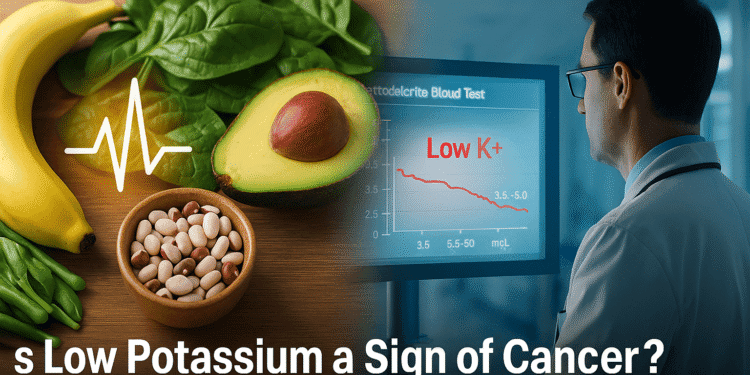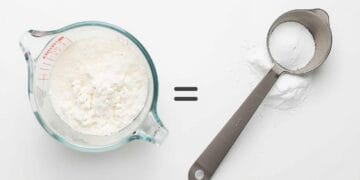Is Low Potassium a Sign of Cancer?
Have you ever wondered whether your body’s chemical balance could be signaling something serious? Low potassium, medically known as hypokalemia, is a condition that affects many people worldwide. While it’s often linked to dietary habits or medication side effects, some worry whether it could indicate something more sinister, like cancer. Let’s dive deep into this topic and separate fact from fear.
Understanding Potassium and Its Role in the Body
What Is Potassium?
Potassium is an essential mineral and electrolyte that your body needs to function properly. It’s found naturally in many foods and plays a crucial role in maintaining fluid balance, nerve signals, and muscle contractions. Think of potassium as the conductor of your body’s orchestra—without it, everything falls out of sync.
Your cells depend on potassium to maintain the right electrical charge, which allows your heart to beat regularly and your muscles to contract smoothly. The kidneys work tirelessly to keep potassium levels balanced, excreting excess amounts through urine.
Why Is Potassium Important for Your Health?
Potassium does more than just keep your muscles working. It helps regulate blood pressure, supports cardiovascular health, maintains proper pH levels in your blood, and even aids in bone health. A normal potassium level ranges between 3.5 to 5.0 milliequivalents per liter (mEq/L) in your blood. When levels drop below this range, your body sends out warning signals.
What Is Hypokalemia (Low Potassium)?
Symptoms of Low Potassium
When your potassium levels dip too low, your body doesn’t stay silent about it. You might experience muscle weakness, cramps, or fatigue that makes even simple tasks feel exhausting. Some people report heart palpitations, constipation, or even numbness and tingling sensations.
In severe cases, hypokalemia can lead to life-threatening complications like abnormal heart rhythms or paralysis. That’s why recognizing the symptoms early is absolutely critical.
How Is Low Potassium Diagnosed?
Doctors typically diagnose low potassium through a simple blood test called a basic metabolic panel or comprehensive metabolic panel. This test measures the electrolyte levels in your blood. If your potassium is low, your doctor will likely investigate further to determine the underlying cause.
Common Causes of Low Potassium
Dietary Deficiencies
Not eating enough potassium-rich foods is one of the most straightforward causes of hypokalemia. If your diet consists mainly of processed foods with little fruits and vegetables, you’re not giving your body the potassium it needs.
Medications That Lower Potassium
Certain medications, especially diuretics (water pills) used to treat high blood pressure, can cause your body to lose too much potassium through urine. Laxatives, when overused, can also deplete potassium levels.
Gastrointestinal Issues
Chronic vomiting or diarrhea leads to significant potassium loss. Conditions like inflammatory bowel disease, celiac disease, or any disorder that affects nutrient absorption can contribute to hypokalemia.
Kidney Problems
Your kidneys regulate potassium balance, so when they’re not functioning properly, potassium levels can become erratic. Certain kidney disorders cause excessive potassium excretion, leading to chronically low levels.
The Connection Between Low Potassium and Cancer
Can Cancer Cause Low Potassium?
Here’s where we address the elephant in the room. Yes, cancer can cause low potassium, but it’s not a direct or common sign of cancer. Low potassium is rarely the first symptom that leads to a cancer diagnosis. Instead, it’s usually a secondary effect caused by the cancer itself or its treatment.
Cancer affects potassium levels through various mechanisms—tumor growth, hormonal imbalances, or complications from the disease. However, having low potassium doesn’t automatically mean you have cancer. There are dozens of other, more common causes.
Types of Cancer Associated with Hypokalemia
Gastrointestinal Cancers
Cancers affecting the stomach, colon, or pancreas can cause chronic diarrhea, vomiting, or malabsorption, all of which lead to potassium loss. Tumors in the digestive tract can interfere with nutrient absorption and electrolyte balance.
Kidney Cancer
Tumors in the kidneys can disrupt normal kidney function, affecting how your body regulates potassium. Renal cell carcinoma, the most common type of kidney cancer, can sometimes present with electrolyte abnormalities.
Leukemia and Blood Cancers
Some blood cancers can affect potassium levels, though this is less common. When cancer cells rapidly break down during treatment, they can release or consume electrolytes in abnormal ways.
How Cancer Treatments Affect Potassium Levels
Chemotherapy and Potassium
Chemotherapy drugs can wreak havoc on your electrolyte balance. Some medications cause nausea and vomiting, leading to potassium loss. Others directly affect kidney function or cause diarrhea, further depleting potassium stores.
Patients undergoing cancer treatment are often monitored closely for electrolyte imbalances because maintaining proper levels is crucial for treatment tolerance and recovery.
Radiation Therapy Side Effects
Radiation, especially when targeted at the abdomen or pelvis, can damage the gastrointestinal tract, leading to diarrhea and poor nutrient absorption. This can result in low potassium levels that need medical management.
Other Medical Conditions That Cause Low Potassium
Hormonal Disorders
Conditions like Cushing’s syndrome or primary aldosteronism cause hormonal imbalances that lead to excessive potassium loss through the kidneys. These disorders are more common causes of chronic hypokalemia than cancer.
Chronic Diarrhea and Vomiting
Whether from food poisoning, chronic infections, or eating disorders like bulimia, prolonged gastrointestinal disturbances significantly lower potassium levels. These conditions are far more likely culprits than cancer.
When Should You Be Concerned About Low Potassium?
Warning Signs That Require Medical Attention
If you experience severe muscle weakness, irregular heartbeats, or breathing difficulties, seek medical attention immediately. Persistent or unexplained low potassium despite dietary changes also warrants investigation.
Risk Factors to Consider
Your overall health context matters. Are you taking medications known to affect potassium? Do you have chronic conditions like kidney disease or diabetes? Have you lost weight unexpectedly or experienced other concerning symptoms? These factors help doctors determine whether further cancer screening is necessary.
Diagnosing the Root Cause of Low Potassium
Blood Tests and Laboratory Work
Beyond measuring potassium levels, doctors will evaluate kidney function, hormone levels, and other electrolytes. They’ll also review your medication list and dietary habits.
Additional Diagnostic Procedures
If initial tests don’t reveal the cause, your doctor might order imaging studies, endoscopy, or specialized hormone tests. Cancer screening would only be pursued if other symptoms or risk factors suggest it’s necessary.
Treatment Options for Low Potassium
Dietary Changes
Increasing your intake of potassium-rich foods is often the first line of defense. Bananas, oranges, potatoes, spinach, beans, and avocados are excellent sources. A balanced diet can often normalize mild hypokalemia.
Potassium Supplements
For moderate to severe cases, doctors may prescribe potassium supplements. These come in various forms—pills, liquids, or even intravenous administration in emergency situations. Never self-prescribe potassium supplements, as too much can be just as dangerous as too little.
Treating Underlying Conditions
The key to resolving chronic low potassium is addressing whatever’s causing it. Whether that means adjusting medications, treating gastrointestinal disorders, or managing kidney problems, fixing the root cause prevents recurrence.
Preventing Low Potassium Levels
Foods Rich in Potassium
Make potassium-rich foods a regular part of your diet. Sweet potatoes, tomatoes, yogurt, salmon, and nuts are all excellent choices. Aim for the recommended daily intake of about 2,600 to 3,400 mg depending on your age and gender.
Lifestyle Modifications
Stay hydrated, limit excessive alcohol consumption, and manage stress. If you’re taking medications that affect potassium, work closely with your doctor to monitor your levels regularly.
Conclusion
So, is low potassium a sign of cancer? The short answer is: rarely, and not usually as a primary symptom. While cancer can cause low potassium through various mechanisms, it’s far more commonly caused by dietary deficiencies, medications, gastrointestinal issues, or kidney problems. If you’re experiencing symptoms of low potassium, don’t jump to worst-case scenarios. Instead, consult with your healthcare provider for proper evaluation. They’ll consider your complete health picture, run appropriate tests, and help identify the true cause. Remember, early detection and treatment of any underlying condition—whether it’s cancer or something else—always leads to better outcomes.
FAQs
1. Can low potassium levels directly indicate I have cancer?
No, low potassium alone is not a direct indicator of cancer. While some cancers can cause hypokalemia, it’s much more commonly caused by diet, medications, or gastrointestinal issues. Your doctor would look for additional symptoms and risk factors before considering cancer as a cause.
2. What are the most common symptoms of low potassium?
The most common symptoms include muscle weakness, fatigue, cramps, constipation, and irregular heartbeats. In severe cases, you might experience paralysis or life-threatening heart rhythm disturbances.
3. How quickly can I raise my potassium levels through diet?
With consistent dietary changes, mild hypokalemia can improve within a few days to a week. However, if your levels are dangerously low, you’ll need medical intervention with supplements or IV potassium before dietary changes take effect.
4. Are there any risks to taking potassium supplements?
Yes, taking too much potassium can lead to hyperkalemia, which can cause dangerous heart rhythms and other serious complications. Always take potassium supplements only as prescribed by your doctor and with proper monitoring.
5. Should I request cancer screening if I have low potassium?
Not necessarily. Low potassium alone doesn’t warrant cancer screening. However, if you have other concerning symptoms like unexplained weight loss, persistent pain, blood in stool, or other red flags, discuss comprehensive screening with your healthcare provider.









